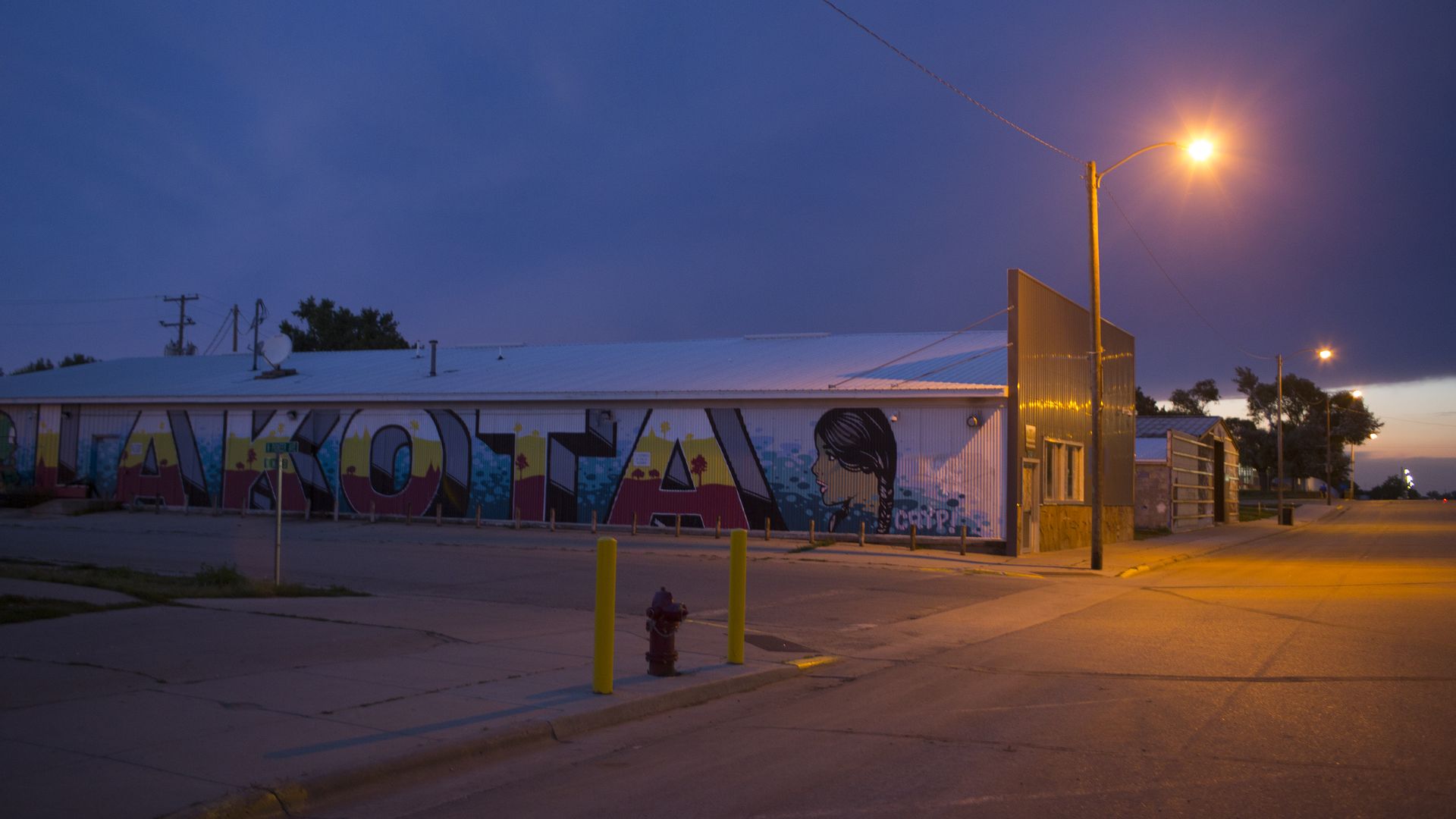May 9, 2020 - Health
South Dakota governor threatens legal action against Sioux coronavirus checkpoints
Add Axios as your preferred source to
see more of our stories on Google.

Eagle Butte, South Dakota, the center of the Cheyenne River Reservation, in August 2019. Photo: Andrew Lichtenstein/Corbis via Getty Images
